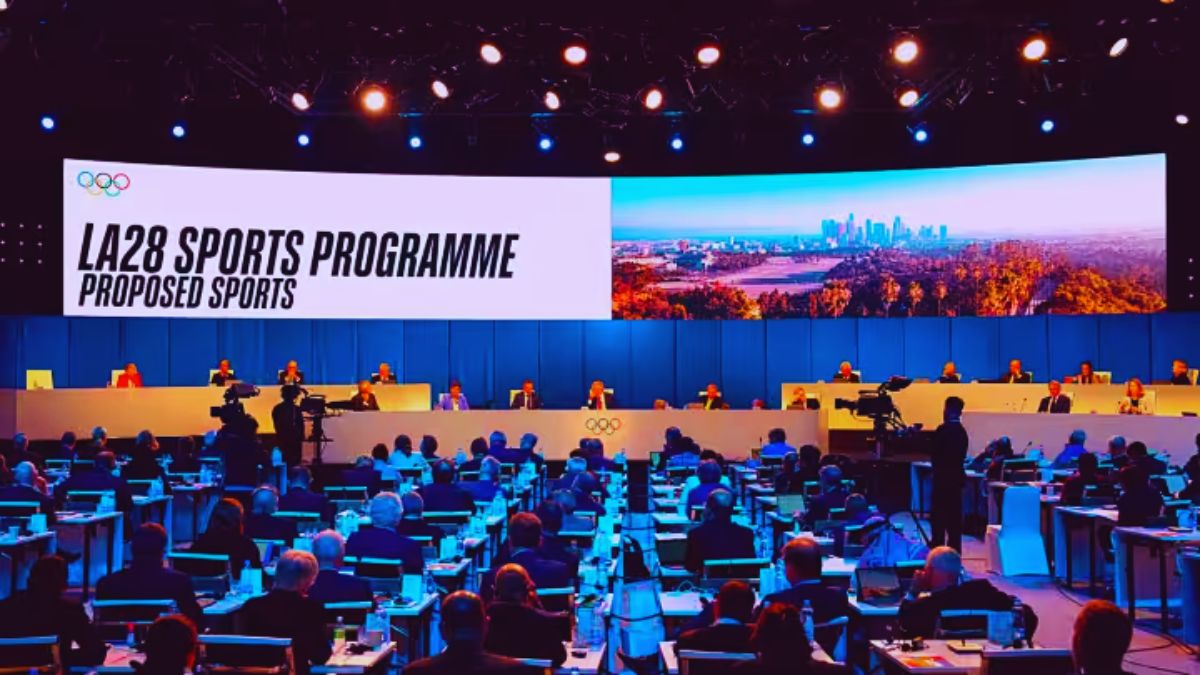The International Olympic Committee (IOC) is facing an unprecedented challenge – climate change. Last week, IOC Chief Thomas Bach admitted that the rising temperatures are threatening the future of the Winter and Summer Olympics. With the recent Winter Olympics in Beijing heavily relying on artificial snow, it’s becoming clear that a new approach is necessary to protect the Games.
Also Read: IOC Executive Board Meeting: Decisions, Discussions, and the Future of Olympic Sports
Thomas Bach highlighted that by 2040, warming temperatures may restrict snow sports to just 10 countries. This dire prediction has led the IOC to consider a radical idea: a rotating pool of host countries for the Winter Olympics. The shift is not just limited to winter sports, as climate change is also impacting summer events.
#WATCH | Maharashtra: International Olympic Committee (IOC) Executive Board meeting underway in Mumbai. pic.twitter.com/p0lzE3dxgh
— ANI (@ANI) October 12, 2023
India, with its keen interest in hosting the Summer Olympics in 2036, faces the challenge of rising temperatures. To adapt to these changing environments, Bach suggested moving the Olympics to a later date in August, but this presents a logistical nightmare. The sports calendar is tightly woven into the Olympics, making any significant shift a complex endeavour.
Jacqueline Barrett, the Future Olympic Games Hosts Director at the IOC, emphasized the need to prioritize athlete safety. High heat and humidity in some potential host countries pose a considerable risk. These concerns have initiated discussions about changing the timing of the Games, particularly to mitigate the impact of weather conditions.
However, modifying the calendar is easier said than done, as many sports are interwoven with Olympic qualifications, and any change would require a long-term perspective. Barrett underlined the importance of addressing these issues in advance as part of a country’s bid, rather than searching for last-minute solutions to cope with extreme temperatures.
Marie Sallois, IOC’s Director of Corporate and Sustainable Development, suggested creative bids that could involve multiple cities or even cross-border solutions to mitigate the effects of climate change. Bach proposed simple climate mitigation measures like scheduling competitions early in the morning or late at night, a practice already planned for the upcoming Paris Olympics.
International Olympic Committee President, Thomas Bach, lauded Reliance Foundation and International Olympic Committee Member Mrs. Nita M. Ambani in his opening address on the first day of the IOC Executive Board meeting in Mumbai today.
“Reliance Foundation’s work exactly… pic.twitter.com/rGSsCMGl7R
— Reliance Foundation (@ril_foundation) October 12, 2023
In some cases, high-altitude locations could offer relief from scorching temperatures. Bach envisioned events like cross country or 1500m races being held at higher altitudes, where the climate is more favourable.
The Summer Olympics appear to have more flexibility in adapting to climate change, as they don’t depend on mountains or snow. This presents an opportunity for host countries to find innovative solutions that allow the Games to continue, even in the face of rising temperatures.
The IOC’s acknowledgement of the climate crisis affecting the Olympics is a significant step towards adapting to the changing world. As the debate on how to tackle these challenges continues, the future of the Games may look quite different. But one thing is clear: the IOC is committed to ensuring that the spirit of the Olympics endures, no matter the weather.





